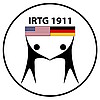Research Projects - Second Generation (2016 - 2019)
The joint research program comprises two different research areas that focus on different aspects of inflammation in the context of allergic and infectious diseases; Research Area A "Environmental changes as culprits of maladaptive immune deviation in allergy" and Research Area B "Cellular cross-talk and molecular mechanisms controlling infections with intracellular pathogens". The aim of the seven projects (6 PhD, 1 MD/PhD) summarized in Research Area A is a better understanding of the immune mechanisms controlling the development of experimental allergic asthma and food allergy. For this purpose, several projects investigate the interplay of the allergens and the microbiome with the epithelial barrier and its impact on epithelial cell activation (A1, A2, A6, A7, MD/PhD1). Further, these projects aim to understand the consequences of such interactions for the activation and/or cross-talk of DCs with eosinophils and macrophages (A1, A7, MD/PhD 1), ILCs (A2) or g/d T cells (A6). Another project will focus on epithelial cell activation by neutrophils (A5). Finally, project A3 will assess the translational potential of Treg and B cell-mediated tolerance induction. The main goal of the eight projects (7 PhD/1 MD/PhD) that form Research Area B is to broaden our understanding of the immune mechanisms and conditions underlying pathogen sensing, activation and modulation of innate immune cells, its impact on the development of pathogen- specific adaptive immunity and, eventually, the successful elimination or control of the infection.
Please click here for more information the projects of Research Area A and Research Area B.



